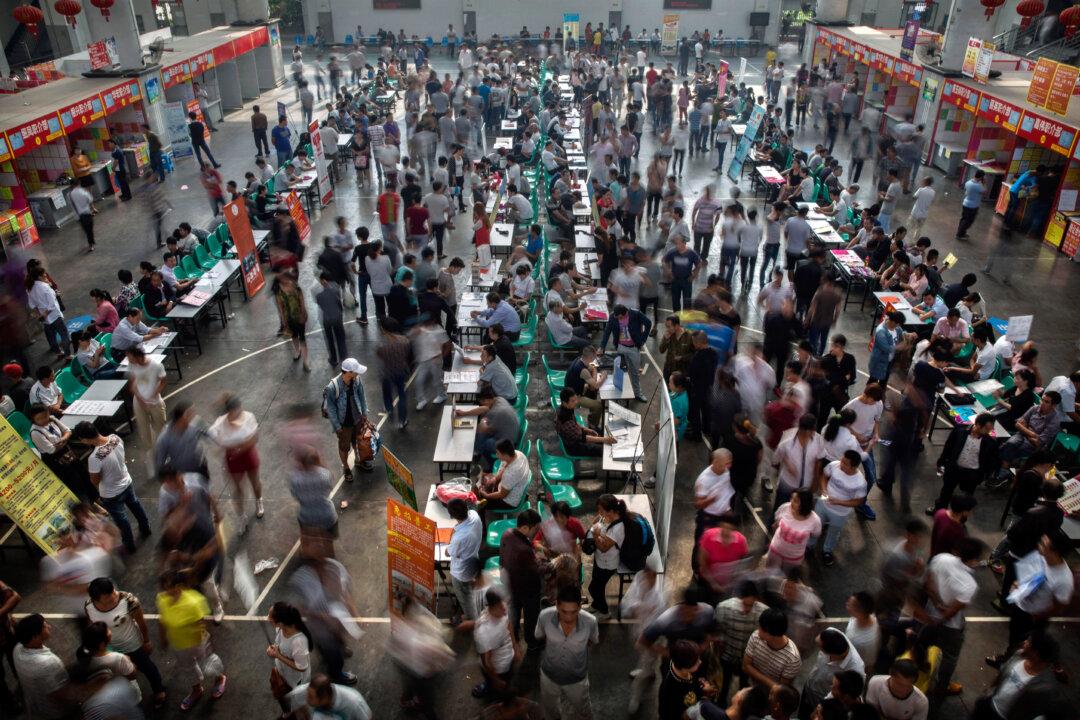China recently reported its highest youth unemployment rate to date. However, the number of college graduates is also reaching a record high this year. These elements, coupled with an economic decline caused by the communist regime’s COVID-19 lockdowns, are making the unemployment issue especially acute.
According to data published by the authorities in mid-May, the unemployment rate among China’s youth aged 16-24 was as high as 18.2 percent in April, an increase of 2.2 percentage points from March, triggering wide concern and discussions in Chinese media. The articles on China’s major news portals have compared the record-high number with other countries during the same period. An article on 163.com listed the youth unemployment rate of those 16 to 20 in the United States to be 9.5 percent, the unemployment rate among young people under the age of 24 in Japan was 3.8 percent last month; in Taiwan in March, the unemployment rate of young people under the age of 24 was 12.48 percent, and in the UK was 10.6 percent.




